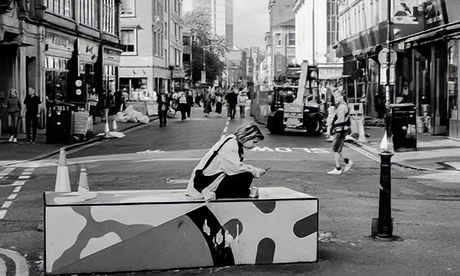As I’ve mentioned, back during the lengthy pandemic lockdown, when we had few places to go and comparatively little to do, I decided to take advantage of all that unforeseen solitude by developing my spiritual life.
Among other things, I studied the works of Roman Catholic mystics.
One sublime idea they sometimes express is that each of us — indeed, God’s whole creation — is one with the Maker of everything.
God is everywhere and everything
If I understand the idea correctly — and since I’m an autodidact on the subject, who knows? — they mean there is no separating any of us from God, or from each other or, for that matter, from the beasts and the mountains and the air.
We’re all within God. God’s within us. The Spirit who animates all beings animates us. There’s no place we can go where God isn’t present in all his glory.
This idea goes all the way back to the Bible, I believe. St. Paul once described Christ as “the everything in everything.”
He also declared to the pagan philosophers on Mars Hill that “in God we live and move and exist.” For my purposes here, the emphasis is on the “in.”
Anyway, various mystics, monks and contemplatives I read have visited this profound concept, each giving it his or her own spin.
“But when we act in grace, our actions are not ours alone, they belong to God,” Thomas Merton writes in “Thoughts in Solitude.”
“For his actions in us reveal his being in us. The whole of life is to spiritualize our activities by humility and faith, to silence our (baser) nature by charity.”
“God loves things by becoming them,” Richard Rohr says in “The Universal Christ.” “God loves things by uniting with them, not by excluding them.”
If you’re of a certain spiritual bent, and I am, you can take such ideas and go many directions with them, most of those directions helpful or at least eye-opening.
However, the way I want to point out here is this.
The sanctified and the mundane
Some mystics maintain that when we start to see the divine God living and working through us always, in all places, through all tasks, we begin to lose our distinction between what’s holy and what’s carnal, between what’s sanctified and what’s mundane — between what’s mere toil and what’s worship.
These seers maintain it all becomes holy. It all becomes a form of worship. God is unfailingly present. God has a purpose in it all. God is using it to his own ends.
For instance, as a preacher I might find myself running late as I rush to church to deliver my sermon on Christianity’s most important day, Easter, to the biggest crowd I’ll see all year. And let’s say that on the way I get a flat tyre, too.
I would find this disconcerting. I’d be thinking: I’ve got to figure out how to assemble my jack — quickly. I’m going to get my bright Easter clothes grubby from this dirty tyre.
I might even miss the whole service. I’m going to disappoint my parishioners and their guests. What a disaster!
My blood pressure would rise by 20 points. Then 40.
You see, my instinct is to think of preaching an Easter sermon as a holy act — and changing a tyre as decidedly unholy. In this case, the latter would have sabotaged the former.
But on their insightful days, at least, the mystics might regard the scene differently.
If the ghost of Merton were to come floating out of the woods to watch me struggle with the spare tyre, he might say softly, “Peace, Reverend.
“This moment is as holy as preaching an Easter sermon. The resurrection is right here, right now. Relax, God will see to your congregation.
“You just tighten those lug nuts. Take your time. Breathe the Spirit in deeply.
“God’s abiding in you, guiding your hands. Regard for a second the wonder of the knuckles and creases on those hands. Try to count the pores of your skin — you can’t, because they’re countless.
“Hear the birds singing in the trees above you. Feel the power of the creation itself pulsating along the shoulder of this country highway. It’s aglow with the glory of the Lord.”
At which point I’d cuss the ghost and tell him to mind his own flipping business, that I had somewhere important to be and if he wasn’t going to help, he should get back to his hermitage.
(Just a little ministerial humor! I wouldn’t really cuss Merton’s ghost!)
Understanding holiness
Seriously, the mystics seem to possess an alternative — and I believe healthier — way of understanding holiness, God, work, life itself.
To them, any act becomes holy, and wholly rewarding, once we discern God’s presence in it.
Weeding your flower bed is of the same cloth as sitting for tea with the Pope. Changing a baby’s diaper is as spiritual as delivering Communion.
The monks who pray in a monastery and make cheese to support it find the cheesemaking as revelatory as the prayers.
It’s all God, everywhere, at all times, for all of us. Whatever we’re doing, once we’ve recognized God there, and God in us, that becomes enough.
- First published by Religion Unplugged
- Paul Prather has been a rural Pentecostal pastor in Kentucky for more than 40 years and is a journalist
News category: Analysis and Comment, Great reads.




